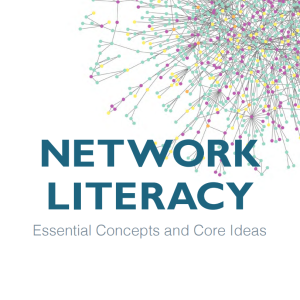A booklet about networks literacy developed by Mason Porter, Fellow of Somerville College and Professor of Nonlinear and Complex Systems in the University of Oxford's Mathematical Institute, in collaboration with colleagues from the USA, could help people understand all types of networks from social media to rabbit warrens. Mason was part of a team of over 30 network-science researchers, educators, teachers, and students who have written the booklet on networks literacy that schools can adapt to teach students the core concepts about networks.
"The concept of networks is truly interdisciplinary and knowing about general properties of networks allows students to see common patterns across disciplines, and thereby transcend disciplinary boundaries, said Hiroki Sayama, one of the partners on the project and Director of the Center for Collective Dynamics of Complex Systems and Associate Professor of Systems Science and Industrial Engineering at Binghamton University. It would be wonderful to see students studying various subjects - languages, history, social phenomena, biological organisms, engineered products, the Internet - all from a common lens of networks.
Porter, Sayama, and co-authors Catherine Cramer, Lori Sheetz, and Stephen Uzzo enumerated seven key concepts (with the input of numerous others) that characterise networks. The work was driven by one key question: what should every person living in the 21st century know about networks by the time they finish secondary education? The sooner future scientists know these core ideas, the sooner they can make networks around us more efficient, cost-effective, and safe.
The booklet, called 'Network Literacy: Essential Concepts and Core Ideas', breaks down the key ideas so that teachers can use it in the classroom or for lesson planning. The concepts have comparable importances, and they are ordered roughly according to difficulty level: the earlier concepts are easier to understand for everyone, whereas the latter ones may need more thinking and learning to grasp fully what they mean.
The project was done in collaboration with the New York Hall of Science and the U.S. Military Academy at West Point. The booklet has been translated into eight different languages so far, including Persian, Japanese, and German. The booklet (including all translations) is freely available online.
A paper (with Sayama as the lead author), called 'What Are Essential Concepts About Networks?', about the procedure of creating the booklet appeared on 11 November as an advance-access article in the Journal of Complex Networks.


